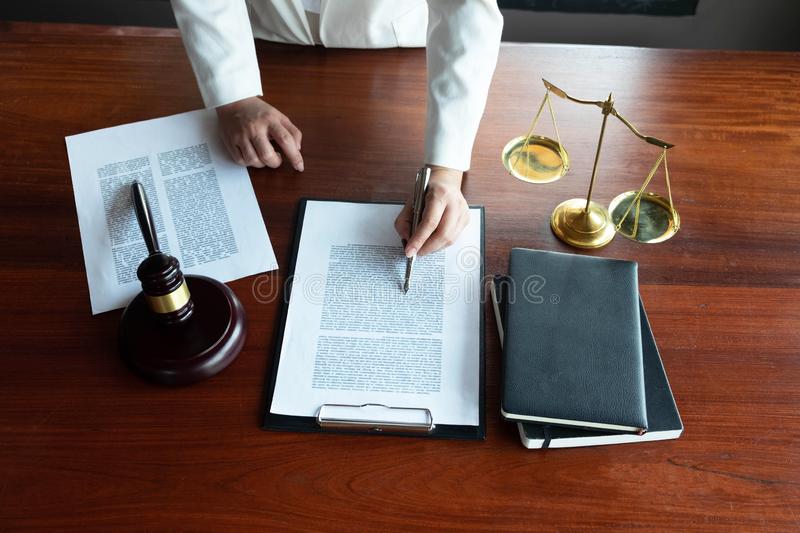
When it comes to legal translation, accuracy and precision are of utmost importance. Any mistakes or misinterpretations in legal documents can have serious consequences. That’s why it’s crucial to choose the right legal translation company for your needs.
While there are many options available, forming a strategic partnership with a reputable and experienced translation company can provide numerous benefits and ensure the highest quality of translated materials. In this blog post, we will discuss the key factors to consider when selecting a professional translation company and how forming a strategic partnership can benefit your organization.
Understanding the Importance of Legal Translation
The legal translation goes beyond mere linguistic proficiency. It’s a unique sector that intertwines language skills with a deep comprehension of legal systems, cultural subtleties, and precise technical terminologies in different languages. It’s like a tightrope walk where balance is critical — too much focus on the language aspect could result in a loss of legal accuracy, while too much emphasis on the legal side might compromise linguistic integrity.
Imagine you’re translating a contract from English to French. It’s not as simple as translating individual words and phrases. The translation must capture the legal implications, obligations, and rights contained in the original document.
Any ambiguity, even a slight one, could lead to misinterpretation, potentially culminating in legal disputes. Such nuances showcase why legal and accurate translation isn’t just about language; it’s about upholding justice and maintaining the integrity of legal processes across different linguistic landscapes.
The importance of certified translation also shines through when considering its role in global business. With companies operating across borders and legal systems, precise legal and accurate translation is necessary for the smooth conduct of international business operations.
For example, international patents, trademark filings, or merger and acquisition documents all require expert legal and accurate translation to ensure that every stakeholder, irrespective of their native language, understands the details of the agreement, promoting trust and fostering successful international business relationships.
Lastly, certified translation plays a pivotal role in judicial proceedings, particularly those involving different jurisdictions. Translating witness statements, court transcripts, or legal rulings accurately is crucial to ensure justice is served. So, certified translation bridges linguistic gaps and serves as a tool to facilitate fairness in the global legal system.
Criteria for Choosing a Legal Translation Office
Identifying the ideal legal translation office for your needs can be a complex process. However, keeping a few vital factors in mind can help simplify your selection process.
- First, consider the company’s expertise and experience in invalid translation. This is a specialized field that necessitates an intimate understanding of both the law and the language. Check the company’s track record and client feedback to gauge their capability and reliability in handling legal documents.
- Second, focus on the company’s knowledge of legal systems and terminologies. A competent valid translation company should be well-versed in the legal systems of both the source and target languages. Also, ensure they are proficient in the specific areas of law relevant to your documents.
- Third, examine the linguistic proficiency of their translators. Just knowing the law is not enough; translators need to have excellent command of both the source and target languages. They should be able to accurately convey complex legal concepts and terminologies in the required language.
- Fourth, consider the company’s confidentiality and security measures. Legal documents often contain sensitive information, and the translation company must respect and protect this data. The company should have robust security systems in place and also provide a confidentiality agreement.
- We have a team of expert linguists and legal professionals who are committed to delivering precise, confidential, and timely translations tailored to the intricacies of the legal field. Trust them to navigate the complexities of legal terminology and provide you with a reliable partner in fostering effective cross-border communication. Choose excellence; choose a Legal Translation Company for your linguistic legal needs.
- Lastly, consider the company’s customer service. A company that values its clients will ensure effective communication, respond promptly to queries, and keep the client informed throughout the translation process.
Next Steps to Select the Right Legal Translation Company
With a clear understanding of the crucial factors to consider in your search, it’s time to take proactive steps toward securing a competent legal translation company.
- First, compile a shortlist of potential translation companies. Use online research, peer recommendations, and client reviews to help create this list. Look for firms that showcase a solid background in professional translation, a deep understanding of your relevant legal fields, and demonstrate linguistic mastery.
- Next, reach out to the firms. Don’t be afraid to ask probing questions. Inquire about their translators’ qualifications, their understanding of legal systems of the languages involved, and their domain expertise. Additionally, seek clarity on their security measures and their commitment to confidentiality.
- Then, request for sample translations if possible. This will allow you to assess the firm’s proficiency firsthand. Keep in mind the balance needed between linguistic mastery and legal accuracy. The sample translations should demonstrate both these aspects.
- Evaluate their customer service as well. Notice how they communicate, their response time, and their willingness to provide information. This will give you an idea of their client engagement approach.
- It would help if you also considered their turnaround time. While they must respect deadlines, speed should never compromise accuracy. Ask them how they maintain this balance.
- Once you have gathered all this information, compare the companies. Analyze their strengths and weaknesses in light of your specific needs. This comprehensive comparison will bring you closer to making an informed decision.
- Finally, before you seal the deal, ensure there’s a well-defined contract in place that outlines the scope of work, confidentiality clauses, and delivery timelines. This will safeguard your interests and set clear expectations for both parties.





